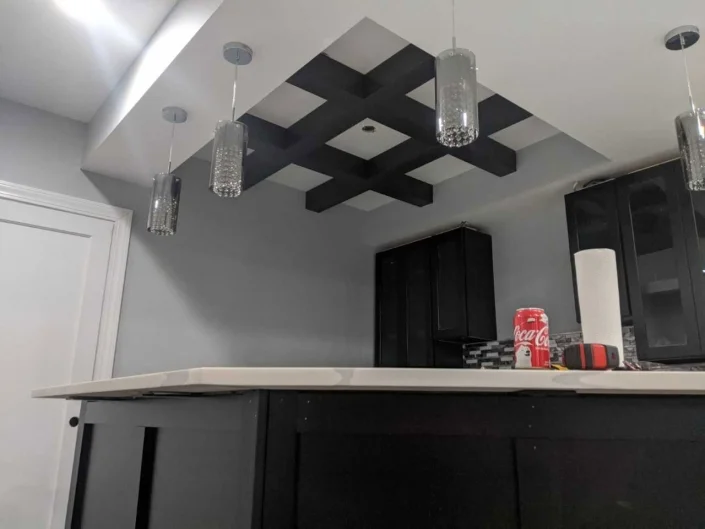
Every successful business needs a strong foundation—literally. Whether you’re building a retail center, medical office, restaurant, or warehouse, investing in quality commercial construction sets the tone for long-term growth and profitability. A well-built commercial space enhances brand image, boosts operational efficiency, and attracts customers or tenants with its professional, modern appeal.
For entrepreneurs and developers in Dyer, IN, commercial construction is booming. With the town’s strategic location, growing population, and focus on development, building from the ground up has never been more valuable.
What Is Commercial Construction?
Commercial construction refers to the planning, design, and building of structures intended for business use. This includes:
-
Office buildings
-
Retail spaces
-
Restaurants
-
Medical and dental clinics
-
Warehouses and storage facilities
-
Shopping plazas
-
Multi-use commercial-residential properties
Unlike residential projects, commercial construction must meet more complex safety regulations, building codes, accessibility standards, and zoning laws. That’s why working with experienced professionals is crucial.
Why Invest in Commercial Construction?
A quality commercial building does more than give your business a physical presence. It becomes part of your brand identity and daily operations. Here’s why it’s worth the investment:
-
Custom Design: Tailor the layout, functionality, and appearance to suit your exact business needs.
-
Modern Infrastructure: Equip your property with smart technology, energy-efficient systems, and scalable utilities.
-
Long-Term Cost Savings: Building with the latest materials and techniques reduces maintenance costs and utility bills.
-
Attract Tenants or Buyers: A professionally built space adds resale and rental value.
-
Compliance from Day One: New builds follow current safety, fire, and accessibility codes—saving you from retrofits later.
In Dyer, where local businesses are expanding and new ones are opening, custom-built commercial properties are a competitive advantage.
Commercial Construction Process: From Concept to Completion
Understanding the process helps business owners set realistic timelines and budgets. A typical commercial construction project goes through these stages:
-
Pre-Planning & Site Selection
This includes identifying zoning, land preparation, environmental impact, and site feasibility. -
Design & Engineering
Architects and engineers work together to create blueprints and system plans (plumbing, HVAC, electrical). -
Permits & Budgeting
Construction permits are secured, timelines are established, and the final budget is approved. -
Groundbreaking & Site Work
The site is cleared, excavated, and prepared for foundation work. -
Structural Framing & Enclosure
Walls, roofing, insulation, windows, and doors are installed to form the building’s structure. -
Interior Systems & Finishes
Includes plumbing, electrical, HVAC, drywall, flooring, paint, and fixtures. -
Inspection & Handover
Final inspections are completed, punch lists checked off, and the property is handed over for occupancy.
The entire timeline varies by size and complexity, but many small-to-medium commercial builds in Dyer can be completed within 6–12 months.
Trends in Commercial Construction
Modern commercial spaces are smarter, greener, and more flexible than ever. Popular trends in commercial construction include:
-
Energy-Efficient Systems: LED lighting, solar panels, and eco-friendly insulation help lower operating costs.
-
Open, Flexible Layouts: Modular spaces that can evolve as your business grows.
-
Smart Building Technology: Integrating lighting, security, and climate control with mobile apps and sensors.
-
Sustainable Materials: Using recycled, non-toxic, or local materials for eco-conscious builds.
-
Mixed-Use Development: Combining retail, office, and residential spaces for better land utilization.
These upgrades aren’t just about style—they’re about improving functionality, comfort, and long-term value.
Why Dyer, IN Is a Prime Location for Commercial Construction
Dyer’s proximity to major highways and the Illinois border makes it a prime location for businesses looking to serve Northwest Indiana and the Chicago metro area. With a growing population and a business-friendly atmosphere, Dyer is attracting more developers interested in building offices, clinics, retail spaces, and restaurants.
Additionally, Dyer’s commitment to infrastructure improvements, green spaces, and community development supports sustainable business growth—making it an ideal setting for new construction projects.
Choosing the Right Commercial Contractor
Your commercial contractor can make or break the project. Here’s what to look for:
-
Local Experience: They should know Dyer’s zoning laws and building codes.
-
Strong Portfolio: Review their past commercial projects to gauge quality.
-
References & Reviews: Ask for testimonials and talk to previous clients.
-
Transparency: Get clear, detailed estimates and project timelines.
-
Licensing & Insurance: Always verify that your builder is properly licensed and insured.
Working with a trusted commercial contractor helps reduce risks and ensures your project stays on time and within budget.
FAQs
1. How much does commercial construction cost per square foot?
Costs vary based on building type, materials, and customization, but most commercial builds range from $100 to $300+ per square foot.
2. Do I need a permit to build a commercial property in Dyer, IN?
Yes. Permits for construction, electrical, plumbing, and zoning must be obtained before any work begins. A good contractor handles this for you.
3. Can I make changes during construction?
Yes, but keep in mind that mid-project changes (called change orders) can delay timelines and increase costs. Finalize plans early when possible.
4. What’s the difference between a commercial and residential contractor?
Commercial contractors specialize in business spaces and understand the codes, permits, and structural demands of larger-scale projects.
5. How long does a typical commercial project take?
Small builds can take 6–9 months, while larger or custom projects might take up to 18 months or more, depending on complexity.